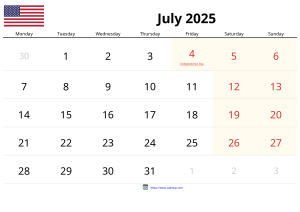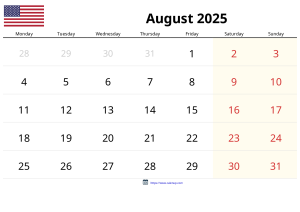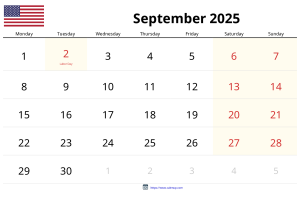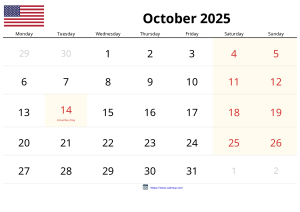The Switzerland Calendar is an essential tool for those who wish to know the important dates and celebrations of this European country. This calendar not only lists the holidays but also includes cultural traditions that reflect the diversity and richness of Swiss society. With information organized in PDF or Excel format, it facilitates the planning of trips and events, allowing both residents and tourists to make the most of these festive dates.
The importance of knowing the holiday and celebration calendar lies in the fact that it helps integrate into the local culture and actively participate in the festivities. Moreover, having access to this data in a practical and organized way contributes to a better experience in Switzerland, ensuring that you do not miss the celebrations that make this country so special.
National Holidays Calendar in Switzerland
Switzerland is known for its cultural and linguistic diversity, reflected in its national holidays. The most important of them is the Swiss Confederation Day, celebrated on August 1st. This date marks the founding of the Swiss Confederation in 1291. On this day, various cities organize bonfires, parades, and public events. Additionally, many Swiss take the opportunity to gather with friends and family, celebrating the unity of the country. It is common for local authorities to organize cultural events that highlight Switzerland's rich history and traditions.

Another significant national holiday is the Christmas Day, celebrated on December 25th. The festivity is marked by Christmas decorations, religious events, and, in many regions, the exchange of gifts. Traditions vary among the cantons, but generally, families gather for a special dinner and to celebrate the date with love and unity. On December 26th, known as St. Stephen's Day, there are also celebrations, although less intense.
National holidays in Switzerland are an opportunity for citizens to celebrate their cultural identities. Each canton may have its own celebrations and additional holidays. For example, the Ascension Holiday and the Pentecost Holiday are observed throughout the country, but they are accompanied by local festivities that differ in each region. This enriches the experience and appreciation of the holidays, making them unique and memorable for the Swiss and visitors alike.
Regional Holidays and Their Particularities
The cultural diversity of Switzerland is also reflected in its regional holidays. Each canton has the freedom to define its own holidays, resulting in an impressive variety. For example, the Feast of Saint Nicholas, celebrated on December 6, is quite popular in some regions, especially in German-speaking areas. Children eagerly await the visit of Saint Nicholas, who brings gifts and sweets. The traditions associated with this holiday include parades and festivities in the communities.

Another example is the Reformation Day, which is celebrated on October 31 in some cantons, such as Geneva. This date marks the Protestant Reformation and is an important holiday for Reformed Christians. The celebrations include religious services and cultural events that reflect the history and significance of the Reformation movement in Switzerland. Thus, the date is an opportunity for discussion and reflection on faith and cultural identity.
Regional holidays not only commemorate historical events but also reinforce the idea of community. Local festivals, such as the May Day Holiday, are celebrated in various parts of the country, with parades and demonstrations highlighting workers' rights. These regional celebrations offer a deeper insight into local culture and traditions, allowing visitors to explore the richness of Swiss diversity.
Religious and Commercial Celebrations in Switzerland
Switzerland hosts various religious traditions that are expressed in its celebrations. The All Saints' Day, celebrated on November 1st, is an important holiday for Catholics. Many families visit cemeteries to honor their deceased loved ones, decorating graves with flowers and candles. This practice reflects the respect and reverence for the memory of those who have passed. Additionally, the celebration includes masses and community events that promote unity among community members.
In addition to religious holidays, commerce plays a significant role in celebrations in Switzerland. The Mother's Day, celebrated on the second Sunday of May, is an important occasion for commerce, with many stores offering special promotions. Families often gift mothers with flowers, chocolates, and other treats. This celebration is not only an opportunity for commerce but also a moment of appreciation and recognition of mothers and their role in society.

Another notable commercial event is Black Friday, which has gained popularity in recent years in Switzerland. Although it is not a Swiss tradition, stores take advantage of the date to offer significant discounts. Black Friday attracts many consumers, who eagerly await shopping opportunities. The celebrations include special events in malls and stores, creating a vibrant and lively atmosphere. This fusion of religious and commercial traditions showcases the adaptability of Swiss culture.
Timetables of Major Swiss Cities
Switzerland is a country with multiple time zones, but most cities follow the Central European Time (CET), which is UTC+1. During daylight saving time, which runs from March to October, the country adopts Central European Summer Time (CEST), advancing one hour. Cities like Zurich, Geneva, and Basel follow this pattern, ensuring efficient synchronization for business and events. This uniformity in time is crucial for the operation of the Swiss economy, which is one of the most developed in the world.
In smaller cities and more remote regions, such as the canton of Valais, the time also remains in CET/CEST. However, it is important to note that some mountainous areas may adopt different times to optimize the use of daylight. Tourists should be aware of these variations, especially when planning their visits and participating in events. The use of time zone apps can assist in organizing travel.
The synchronization of times in major Swiss cities is a benefit for those traveling or conducting business. The ease of aligning appointments and events in different regions is a factor that enhances the experience for residents and visitors. Moreover, with the increase in tourism, clarity in times contributes to better planning of activities, ensuring that everyone enjoys what Switzerland has to offer.
Time Zone Comparison: Switzerland and Other Countries
Comparing the time in Switzerland with other countries is essential for travelers and business people. As mentioned, Switzerland follows the Central European Time (CET). Compared to countries like the United States, which has several time zones, the difference can be significant. For example, while major Swiss cities are in UTC+1, New York is in UTC-5 during standard time, resulting in a six-hour difference. This can impact communication and international business.
Furthermore, comparison with neighboring countries is also relevant. Germany and France, for example, also use CET, but the time difference in relation to other European countries, like the United Kingdom (UTC+0), can cause confusion. Therefore, it is crucial for travelers and business people to be aware of the time differences, especially when scheduling meetings or events involving participants from various locations.
Technology has facilitated this comparison, with apps that can quickly show the time differences between countries. This not only helps in organizing events but also enhances the travel experience. Thus, being aware of time zones is not just a matter of convenience but a necessity to ensure efficiency in an increasingly globalized world.
Summary and Reflection
Switzerland Calendar is an essential tool for those who wish to understand the various celebrations and holidays of the country. Understanding this rich cultural tapestry allows visitors and residents to plan their activities more efficiently. Moreover, the PDF or Excel format facilitates access and organization of information, making it practical for daily consultation and use.
The festivities and holidays, besides being moments of celebration, also reflect Swiss identity and traditions. By knowing these special dates, citizens and tourists can actively participate in the celebrations and even plan trips. These celebrations offer a perfect opportunity to experience local culture and connect with the community.
Therefore, having access to a practical and well-structured calendar of holidays and commemorative events in Switzerland is essential. It not only helps in organizing time but also enriches the experience of those who live in or visit the country. Essentially, an updated calendar is a window into what makes Switzerland a unique place.




